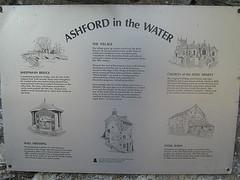MsRaves
Article Information
 At the same time, a written document containing a description of this "knowledge" can serve as an object of ownership of the right, as is the material carrier of "knowledge". Through this document the priority of ownership of the right "knowledge" can be fixed by the patent. Data that operate on computer programs also have "proprietary" nature, as represented in the "electronic" form on a magnetic, optical or other tangible medium. Otherwise program might not work with these data. And so it was quite clear, one very striking example of continuity and the demarcation of property rights: the author wrote this story with the help of computer programs Word, exclusive rights which are owned by Microsoft. In this case, the article itself, of course, is the subject of ownership of the right of the author, who is free to dump the text into a text editor, print or written by hand, publish, and even sell it.
At the same time, a written document containing a description of this "knowledge" can serve as an object of ownership of the right, as is the material carrier of "knowledge". Through this document the priority of ownership of the right "knowledge" can be fixed by the patent. Data that operate on computer programs also have "proprietary" nature, as represented in the "electronic" form on a magnetic, optical or other tangible medium. Otherwise program might not work with these data. And so it was quite clear, one very striking example of continuity and the demarcation of property rights: the author wrote this story with the help of computer programs Word, exclusive rights which are owned by Microsoft. In this case, the article itself, of course, is the subject of ownership of the right of the author, who is free to dump the text into a text editor, print or written by hand, publish, and even sell it.
Ownership of information implies the right and possibility to use this information at the discretion of the owner (holder). Make a reservation at once: of course, to the extent not inconsistent with the law and state interests. In particular, the owner shall be entitled to process them and useful to use any software, information protection and physical media, which deems necessary. This means, in particular, and the possibility of an arbitrary time in its sole discretion to refuse services provider of software tools for the benefit of a supplier or developer, without losing available to him (accumulated) their own information and transferring it to another software environment.